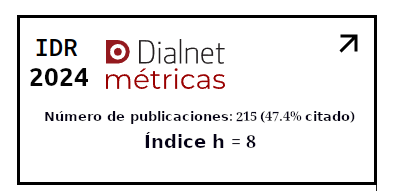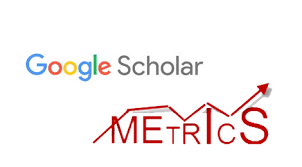Attitudes towards scientific research and statistics in Psychology students
Keywords:
attitudes, research, statistics, psychology studentsAbstract
Current university education places special emphasis on developing skills for scientific research and mastering statistics. However, despite their importance, courses in research methodology and statistics are often the most difficult and least preferred for many students. For this reason, the principal aim of this study was to analyze the relationship between attitudes towards scientific research and statistics in psychology students from a private university in Metropolitan Lima. A simple correlational non-experimental design was used. One hundred psychology students enrolled in an introductory statistics course participated (M = 21.41, SD = 4.20), who answered self-report instruments. The results showed that psychology students have favorable attitudes towards scientific research and statistics. In addition, there are certain differences in the levels of these attitudes according to previous experience in courses in research methodology and statistics. Finally, both variables correlate positively and significantly (r = .482; p < .01). It is concluded that there is an important association between attitudes towards scientific research and statistics in psychology students.
Downloads
References
Aiquipa, J. J., Ramos, C. M., Curay, R. y Guizado, L. L. (2018). Factores implicados para realizar o no realizar tesis en estudiantes de psicología. Propósitos y Representaciones, 6(1), 21–52. https://doi.org/10.20511/pyr2018.v6n1.180
Alarcón, R. (2011). Ensayos sobre psicología contemporánea. Universidad Ricardo Palma/ Editorial Universitaria.
Aldana, G. M., Babativa, D. A., Caraballo, G. J. y Rey, C. A. (2020). Escala de actitudes hacia la investigación (EACIN): Evaluación de sus propiedades psicométricas en una muestra colombiana. Revista CES Psicología, 13(1), 89–103. https://doi.org/10.21615/cesp.13.1.6
Aparicio, A. S. y Bazán, J. L. (2006). Actitud y rendimiento en estadística en profesores peruanos. Acta Latinoamericana de Matemática Educativa, 19, 644–650. Recuperado de http://funes.uniandes.edu.co/5599/1/AparicioActitudAlme2006.pdf
Batanero, C., Vera, O. y Díaz, C. (2012). Dificultades de estudiantes de psicología en la comprensión del contraste de hipótesis. Números. Revista de Didáctica de Las Matemáticas, 80, 91–101. Recuperado de http://www.sinewton.org/numeros/numeros/80/Articulos_01.pdf
Bourne, V. y Nesbit, R. (2018). Do attitudes towards statistics influence the decision to study psychology at degree level? A pilot investigation. Psychology Teaching Review, 24(2), 55–63. Recuperado de https://files.eric.ed.gov/fulltext/EJ1196496.pdf
Burga, A. (2010). Valoración de objetivos en la enseñanza de la estadística en estudiantes de Psicología. Persona, 13, 111–124. https://doi.org/10.26439/persona2010.n013.267
Carmona, J., Martínez, R. J. y Sánchez, M. (2005). Mathematical background and attitudes toward statistics in a sample of Spanish college students. Psychological Reports, 97(1), 53–62. https://doi.org/10.2466/pr0.97.1.53-62
Comas, C., Martins, J. A., Nascimento, M. M. y Estrada, A. (2017). Estudio de las actitudes hacia la estadística en estudiantes de psicología. Bolema - Mathematics Education Bulletin, 31(57), 479–496. https://doi.org/10.1590/1980-4415v31n57a23
De la Cruz, C. (2013). Actitudes hacia la investigación científica en estudiantes universitarios: Análisis en dos universidades nacionales de Lima. PsiqueMag, 2(1), 1–16. Recuperado de http://revistas.ucv.edu.pe/index.php/psiquemag/issue/view/208
Dempster, M. y McCorry, N. K. (2009). The role of previous experience and attitudes toward statistics in statistics assessment outcomes among undergraduate psychology students. Journal of Statistics Education, 17(2). https://doi.org/10.1080/10691898.2009.11889515
Eagly, A. H. y Chaiken, S. (2007). The advantages of an inclusive definition of attitude. Social Cognition, 25(5), 582–602. https://doi.org/10.1521/soco.2007.25.5.582
Earley, M. A. (2014). A synthesis of the literature on research methods education. Teaching in Higher Education, 19(3), 242–253. https://doi.org/10.1080/13562517.2013.860105
Escalante, E., Repetto, A. M. y Mattinello, G. (2012). Exploración y análisis de la actitud hacia la estadística en alumnos de psicología. Liberabit, 18(1), 15–26. Recuperado de http://www.scielo.org.pe/pdf/liber/v18n1/a03v18n1.pdf
Estrada, A., Bazán, J. y Aparicio, A. (2013). Evaluación de las propiedades psicométricas de una escala de actitudes hacia la estadística en profesores. Avances de Investigación en Educación Matemática, 3, 5–23. https://doi.org/10.35763/aiem.v0i3.61
Estrada, A. (2002). Análisis de las actitudes y conocimientos estadísticos elementales en la formación del profesorado (Tesis doctoral). Universitat Autonoma de Barcelona.
Evans, B. (2007). Student attitudes, conceptions, and achievement in introductory undergraduate college statistics. The Mathematics Educator, 17(2), 24–30. Recuperado de http://tme.journals.libs.uga.edu/index.php/tme/article/view/185/172
Fernández, C. y Villavicencio, C. (2017). Habilidades investigativas para trabajos de graduación. Academo, 4(1), 11–23. Recuperado de https://dialnet.unirioja.es/servlet/articulo?codigo=6069618
Gelso, C. J., Mallinckrodt, B. y Judge, A. B. (1996). Research training environment, attitudes toward research, and research self-efficacy: The Revised Research Training Environment Scale. The Counseling Psychologist, 24(2), 304–322. https://doi.org/10.1177/0011000096242010
Griffith, J. D., Adams, L. T., Gu, L. L., Hart, C. L. y Nichols-Whitehead, P. (2012). Students’ attitudes toward statistics across the disciplines: A mixed-methods approach. Statistics Education Research Journal, 11(2), 45–56. Recuperado de https://iase-web.org/documents/SERJ/SERJ11(2)_Griffith.pdf
Hernández, R. (2014). ¿Quién escribe más y sobre qué? Cambios recientes en la geopolítica de la producción científica en América Latina y el Caribe. Instituto de Estudios Peruanos.
Hernández, R., Carranza, F., Caycho-Rodríguez, T., Cabrera-Orosco, I. y Arias-Chávez, D. (2019). Publicaciones científicas en revistas peruanas de psicología: un análisis desde la participación estudiantil. Revista Digital de Investigación en Docencia Universitaria, 13(2), 19–28. https://doi.org/10.19083/ridu.2019.1082
León, F. (2016). ¿Qué significa una tesis de investigación en psicología en el Perú? Persona, 19(1), 151–166. https://doi.org/10.26439/persona2016.n019.977
Livia, J. (2008). La producción científica y los estudios de post grado en psicología en el Perú. Interamerican Journal of Psychology, 42(3), 431–445. Recuperado de http://pepsic.bvsalud.org/pdf/rip/v42n3/v42n3a03.pdf
Mamani-Benito, O., Verastegui-Diaz, A., Mejia, C. R. y Caycho-Rodríguez, T. (2020). Publicación científica de asesores de tesis de Psicología de 30 universidades peruanas. Interamerican Journal of Psychology, 54(1), e1124. https://doi.org/10.30849/ripijp.v54i1.1124
Merino-Soto, C. y Salas-Blas, E. (2016). Estructura de las motivaciones y dificultades percibidas para la investigación entre los docentes universitarios: estudio preliminar. Interamerican Journal of Psychology, 50(2), 161–169. https://doi.org/10.30849/rip/ijp.v50i2.3
Murtonen, M. (2005). University students’ research orientations: Do negative attitudes exist toward quantitative methods? Scandinavian Journal of Educational Research, 49(3), 263–280. https://doi.org/10.1080/00313830500109568
Murtonen, M. y Lehtinen, E. (2003). Difficulties experienced by education and sociology students in quantitative methods courses. Studies in Higher Education, 28(2), 171–185. https://doi.org/10.1080/0307507032000058064
Papanastasiou, E. C. (2014). Revised-Attitudes Toward Research Scale (R-ATR); a first look at its psychometric properties. Journal of Research in Education, 24(2), 146–159. https://doi.org/10.1037/t35506-000
Portocarrero, C. y De la Cruz, C. (2006). Actitudes hacia la investigación científica y factores asociados en estudiantes de la UNFV. Instituto de investigación de la UNFV.
Povee, K. y Roberts, L. D. (2014). Qualitative research in psychology: Attitudes of psychology students and academic staff. Australian Journal of Psychology, 66(1), 28–37. https://doi.org/10.1111/ajpy.12031
Povee, K. y Roberts, L. D. (2015). Attitudes toward mixed methods research in psychology: the best of both worlds? International Journal of Social Research Methodology, 18(1), 41–57. https://doi.org/10.1080/13645579.2013.872399
Rajecki, D. W., Appleby, D., Williams, C. C., Johnson, K. y Jeschke, M. P. (2005). Statistics can wait: Career plans activity and course preferences of American psychology undergraduates. Psychology Learning & Teaching, 4(2), 83–89. https://doi.org/10.2304/plat.2004.4.2.83
Rodolfa, E., Eisman, E., Rehm, L., Bent, R., Nelson, P. y Ritchie, P. (2005). A cube model for competency development: Implications for psychology educators and regulators. Professional Psychology: Research and Practice, 36(4), 347–354. https://doi.org/10.1037/0735-7028.36.4.347
Rodríguez, N. (2011). Actitudes de los estudiantes universitarios hacia la estadística. Interdisciplinaria, 28(2), 199–205. Recuperado de http://www.scielo.org.ar/pdf/interd/v28n2/v28n2a02.pdf
Rosli, M. K., Maat, S. M. y Rosli, R. (2017). Students’ attitude and anxiety towards statistics : A descriptive analysis. Research on Education and Psychology, 1(1), 47–56. Recuperado de http://journalrep.com/wp-content/uploads/2017/12/11-47-56rep.pdf
Rosnow, R. L. y Rosenthal, R. (1996). Computing contrasts, effect sizes, and counternulls on other people’s published data: General procedures for research consumers. Psychological Methods, 1(4), 331–340. https://doi.org/10.1037/1082-989X.1.4.331
Ruggeri, K., Dempster, M., Hanna, D. y Cleary, C. (2008). Experiences and expectations: The real reason nobody likes stats. Psychology Teaching Review, 14(2), 75–83. Recuperado de http://eric.ed.gov/?id=EJ876504%0Ahttp://files.eric.ed.gov/fulltext/EJ876504.pdf
Salas-Blas, E. (2019). Comprendiendo las limitaciones de la investigación. Propósitos y Representaciones, 7(SPE), e424. https://doi.org/10.20511/pyr2019.v7nspe.424
Sesé, A., Jiménez, R., Montaño, J. J. y Palmer, A. (2015). Can attitudes toward statistics and statistics anxiety explain students’ performance? Revista de Psicodidáctica, 20(2), 285–304. https://doi.org/10.1387/RevPsicodidact.13080
Sizemore, O. J. y Lewandowski, G. W. (2009). Learning might not equal liking: Research methods course changes knowledge but not attitudes. Teaching of Psychology, 36(2), 90–95. https://doi.org/10.1080/00986280902739727
Tarazona, E., Bazán, J. y Aparicio, A. (2013). Actitudes hacia la estadística en universitarios peruanos de mediana edad. Revista Digital de Investigación en Docencia Universitaria, 7(1), 57-76. https://doi.org/10.19083/ridu.7.187
Tremblay, P. F., Gardner, R. C. y Heipel, G. (2000). A model of the relationships among measures of affect, aptitude, and performance in introductory statistics. Canadian Journal of Behavioural Science, 32(1), 40–48. https://doi.org/10.1037/h0087099
Vera-Villarroel, P., López-López, W., Lillo, S. y Silva, L. M. (2011). La producción científica en psicología latinoamericana: Un análisis de la investigación por países. Revista Latinoamericana de Psicología, 43(1), 95–104. http://dx.doi.org/10.14349/rlp.v43i1.613
Villamizar, G., Núñez, K. y Rolón, J. (2016). Actitudes de los estudiantes de psicología frente a la investigación. I+D Revista de Investigaciones, 7(1), 49–60. https://doi.org/10.33304/revinv.v07n1-2016006
Vittengl, J. R., Bosley, C. Y., Brescia, S. A., Eckardt, E. A., Neidig, J. M., Shelver, K. S. y Sapenoff, L. A. (2004). Why are some undergraduates more (and others less) interested in psychological research? Teaching of Psychology, 31(2), 91–97. https://doi.org/10.1207/s15328023top3102
Published
How to Cite
Issue
Section
License
Copyright (c) 2021 ACADEMO Revista de Investigación en Ciencias Sociales y Humanidades

This work is licensed under a Creative Commons Attribution 4.0 International License.








